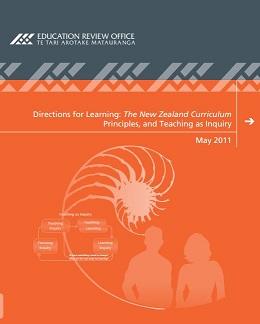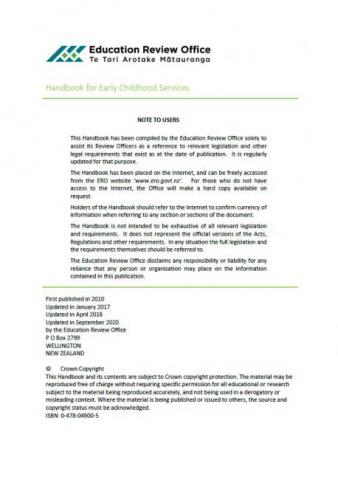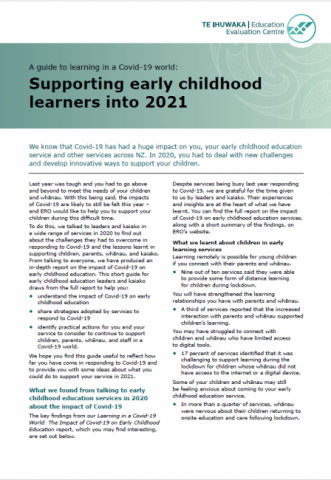Directions for Learning: The New Zealand Curriculum Principles, and Teaching as Inquiry
Published: 22 Jul 2011
In November 2007, a revised curriculum was launched for use in New Zealand schools. The New Zealand Curriculum is a statement of official policy related to teaching and learning in English-medium schools in New Zealand. The requirement for schools to implement The New Zealand Curriculum came into effect on 1 February 2010.
- Audience:
- Parents
- Schools
- Content type:
- Research
- Topics:
- Curriculum









